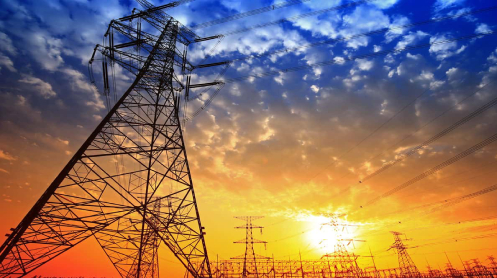ISLAMABAD: In a heated discussion during the Geo Great Debate—Ker Dalo, Pakistan Kay Liye—on Sunday, experts highlighted that power sector reforms must be executed efficiently if Pakistan is to see any significant relief in electricity tariffs. The debate was part of a larger campaign launched by the Mir Khalil-ur-Rahman Foundation (MKRF) and the Geo-Jang Group, aimed at addressing the country’s key economic challenges.
Federal Minister for Power, Sardar Awais Ahmad Khan Leghari, along with industry leaders including Hubco CEO Kamran Kamal, Lucky Electric Power CEO Rohail Muhammad, FPCCI Vice President Asif Inam, economist Ammar Habib Khan, and former caretaker minister Gohar Ejaz, participated in the two-hour debate, which aired from 7 pm to 9 pm. The discussion revolved around the Independent Power Producers (IPPs) and the broader structural issues that are driving electricity prices upward.
Key Points of the Debate
Leghari admitted that Pakistan’s power generation sector is burdened by inefficiencies, including transmission losses and power theft amounting to nearly Rs500-600 billion annually. These issues are inflating the overall cost of electricity, which is currently around Rs35 per unit, with capacity payments alone making up over 50% of that cost. Capacity payments are fixed payments made to power producers, whether or not the electricity is used, and this component alone stands at Rs18.39 per unit, including loan payments.
To address these issues, Leghari noted that the government is renegotiating IPP contracts to reduce the financial burden on the state and consumers. The termination of five IPP contracts, which the National Transmission and Despatch Company (NTDC) no longer uses, is expected to bring a relief of Rs0.65 per unit. Additionally, the government is working on a five-year policy to manage demand and is in discussions with IPPs to voluntarily revise their contracts in the interest of the nation.
Challenges in Transmission and Distribution
Leghari emphasized that reforms are needed across the entire power sector, which consists of three key components: generation, distribution, and transmission. He acknowledged that the NTDC is currently unable to transmit cheaper energy from southern parts of Pakistan to the energy-demanding regions like Punjab. As a result, consumers are forced to rely on more expensive energy sources. The NTDC’s inefficiency, Leghari said, costs consumers Rs300 billion annually.
Privatization of power distribution companies (DISCOs) is seen as another major reform needed to enhance efficiency. Leghari revealed that the government is actively working on a comprehensive plan to privatize these companies, while also focusing on introducing private power markets, such as the Competitive Trading Bilateral Contract Market (CTBCM).
Debt Profiling of CPEC Projects
A major highlight of the debate was the discussion around the debt profiling of China-Pakistan Economic Corridor (CPEC) projects. Leghari stated that profiling Chinese loans used in CPEC power plants could provide a significant relief of Rs3.5 to Rs3.75 per unit. The government has hired consultants for this purpose and is engaging with Chinese lenders and the Bank of China to restructure the loans.
Calls for IPP Accountability
Several panelists, including Gohar Ejaz and economist Ammar Habib Khan, raised concerns about the massive profits made by IPPs over the years. Ejaz accused the IPPs of exploiting the country by making extraordinary profits through inflated capacity payments. He pointed out that some wind power projects were set up at a cost double their actual value, and some IPPs are charging up to 14 cents per unit while others produce power for as low as 4 cents.
Hubco CEO Kamran Kamal defended the IPPs, stating that they had adhered to the contracts offered by the government at the time. Kamal argued that IPPs are not responsible for the inefficiencies in the power sector, such as the failure of the NTDC to transmit cheaper energy. He also expressed readiness for a forensic audit and stated that IPPs were willing to renegotiate contracts as long as the government committed to reforms.
Economic Context
Economist Ammar Habib Khan explained that the capacity payments issue is further exacerbated by Pakistan’s economic situation. With a heavily import-dependent economy, the country’s foreign exchange reserves have taken a hit, causing the value of the US dollar to surge from Rs170 to Rs320. This has led to higher capacity payments, as many IPP contracts are dollar-denominated. The rise in global interest rates, with LIBOR increasing from 0.45% to 5%, has also added to the financial burden.
Khan stressed that increasing energy consumption is essential to spreading the cost of capacity payments across a larger number of units. He also highlighted that Pakistan’s power generation capacity is currently underutilized, resulting in inflated capacity charges.
Multi-Tiered Solutions
The debate concluded with several solutions proposed by the panelists. These included reducing power theft, improving bill recovery, restructuring NTDC to better handle energy transmission, and privatizing DISCOs. Additionally, the government is working to rationalize taxes on electricity bills, which further increase the cost for consumers.
Leghari stated that the government is also looking to reduce losses in the power sector, which could bring a tariff reduction of Rs2 to Rs2.5 per unit. The privatization of DISCOs and reforms in the transmission sector are seen as long-term solutions to Pakistan’s energy crisis.
Conclusion
The Ker Dalo campaign, through debates like this, aims to spark discussions on Pakistan’s most pressing economic issues, encouraging bold reforms. The energy sector, particularly power generation and distribution, remains central to the country’s economic growth and the competitiveness of its products in international markets.
Minister Leghari reiterated the government’s commitment to tackling these challenges through comprehensive reforms and negotiations with stakeholders, including IPPs and CPEC project lenders, to provide relief to consumers. The debate underscored the urgent need for a strategic overhaul to stabilize Pakistan’s energy sector and ensure affordable electricity for all.
Story by Khalid Mustafa







